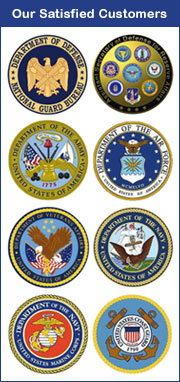Self-Assessments Guide
VALUE AND PURPOSE OF THE SELF-ASSESSMENTS
Assessments:
- Establish a behavioral and numerical baseline of behavior, attitudes, and personality from which facilitators and participants can gauge progress toward identified goals.
- Allow facilitators can choose one or more, or all of the activities relevant to their participants' specific needs and concerns.
- Help facilitators explore characteristics before they begin their plan of treatment.
- Help facilitators gather valuable information about their students/clients.
- Help facilitators in the measurement of change over time.
- Can be used as pre-tests and post-tests to measure changes in behavior, attitude, and personality.
- Help facilitators identify patterns that are negatively affecting a participant.
- Prompt insight and behavioral change.
- Provide facilitators with a quick, nonthreatening way for people to learn about themselves.
- Help participants feel part of the treatment-planning process.
- Provide participants with a starting point to begin to learn more about themselves and their strengths and limitations.
- Can be self-administered, scored and interpreted by people at their own pace.
- Allow facilitators to gather information about participants to get a complete picture of each person.
- Can be used with an individual or in a group setting.
BE AWARE
Assessments are a great aid in developing plans for effective change and decreased symptoms. Facilitators should be aware of the following when administering, scoring, and interpreting the assessments:
- The purpose of these assessments is not to pigeonhole people, but to allow them to explore various elements of themselves and their situations.
- They are self-assessments and not tests. Traditional tests measure knowledge or right or wrong responses. For the assessments provided, remind participants that there are no right or wrong answers. These assessments ask only for opinions or attitudes.
- The assessments have face value, but have not been formally normed for validity and reliability.
- The assessments are based on self-reported data. In other words, the accuracy and usefulness of the information is dependent on the information that participants honestly provide about themselves.
- The assessments are exploratory exercises and not a judgment of who people are as human beings.
- The assessments are not a substitute for professional assistance. If you feel any of your participants need more assistance than you can provide, refer them to an appropriate professional.
- These “formative assessments” and can be used to assess participant’s current level of functioning and also to measure intellectual functioning change over time.
- The assessments are very powerful tools for helping participants learn more about themselves to gain valuable insights into their constructive and destructive ways of thinking.
FOR BEST RESULTS
When administering the assessments, please remember that the assessments can be administered, scored, and interpreted by the client. If working in a group, facilitators should circulate among participants as they complete assessments to ensure that there are no questions. If working with an individual client, facilitators can use the instruction collaboratively.
Things to remember about self-assessments:
- Self-assessments provide you with a small sample of behavior and should not be used to stereotype participants. Self-assessments are designed to allow participants to explore their behavioral strengths and weaknesses.
- Factors such as cultural background, disabilities, and age should be taken into consideration when exploring self-assessment results.
- Self-assessments are designed to be self-administered, scored and interpreted by the participants. However, facilitators should be available to assist participants in understanding their scores in an objective and helpful way.
- Self-assessments are designed to gather self-reported data, thus the results are dependent on each participant’s motivation and cooperation.
- Self-assessment results should be explored in light of other behavioral data facilitators have available, not in isolation.
- Self-assessments can be used to form specific decisions about the type of instruction that would be most beneficial. Thus, if your group scores lowest on a particular self-assessment, that might be an effective place to concentrate instruction.
- Participants can use the results of their self-assessments to adjust and improve their behavior.
HOW WE BEGAN
The assessments were developed in an attempt to help facilitators or students/clients gather as much information about themselves as they possibly could within the smallest amount of time. Because assessments have traditionally been used as a starting point in many types of therapeutic relationships, we thought that developing a series of assessments that could be used to help clients and students explore their attitudes, behavior, thinking, and personality were critical. We designed the assessments to be user friendly and help people explore themselves as thoroughly as possible. The assessments cover a variety of social, emotional, and resiliency topics, and are designed to be consumable. Therefore, one of the reasons the assessments are valuable is that the person is able to take the assessment away for further reflection. We knew that we would be unable to develop assessments with a lot of validity and reliability research. Rather, we developed the assessments by adhering to strict assessment-development techniques. Then, a sample of the assessments were used in a series of pre and post-test experiments and were shown to have great face validity, measure what they purport to measure, and are reliable measures of modern-day life skills.










